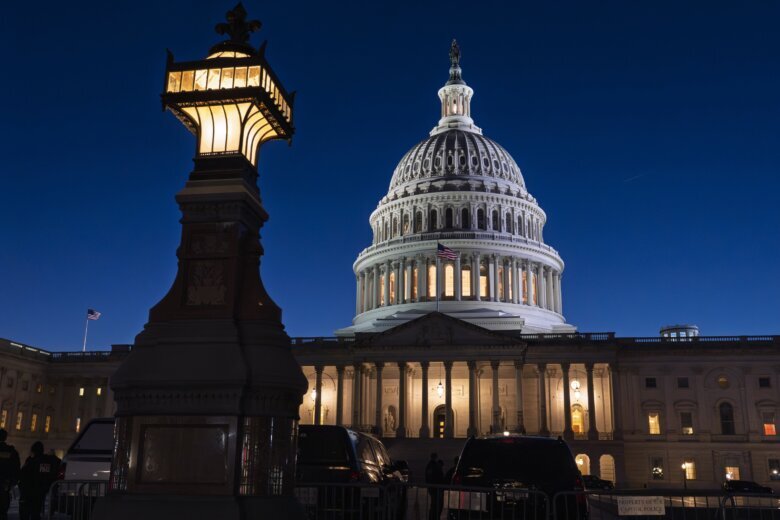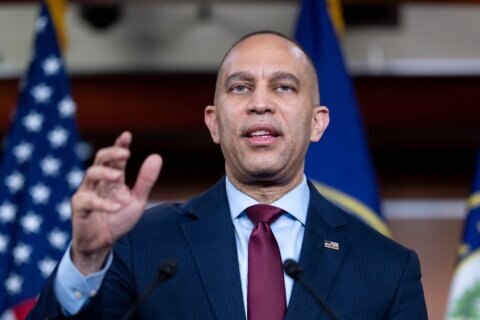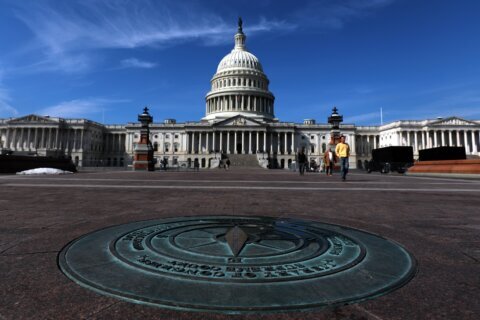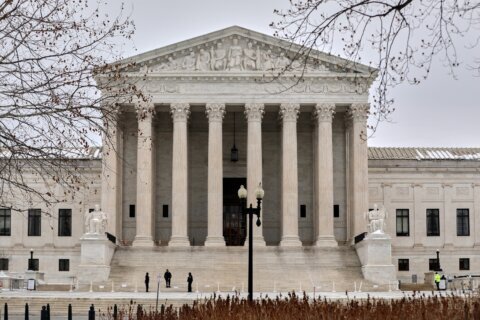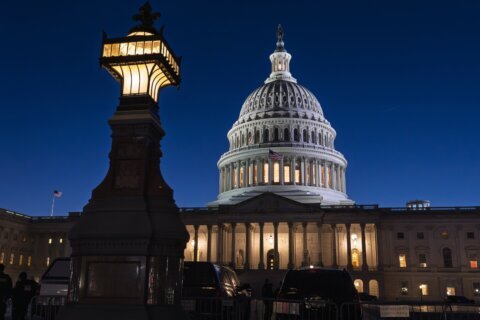
When a government shutdown occurs, your budget could be affected in myriad ways.
You might see few to no changes in certain areas, such as continued Social Security paychecks or a government pension. Other segments could have more intense consequences, including delays in travel or application approvals. The implications will vary and be based on the agreements that Congress will make in the next few days.
Every year, Congress works to pass budget legislation for the next fiscal year, which the president then signs. Under regular conditions, Congress passes annual spending bills before the start of the new fiscal year, which takes place every Oct. 1.
If the government does not reach an agreement, it can pass short-term spending bills to keep Congress operating while lawmakers work to pass the annual spending bills.
The annual spending bills consist of 12 appropriations bills, and Congress has not yet enacted any full-year appropriations for the 2025 fiscal year. Congress is working to prevent a federal government shutdown scheduled to begin Friday.
Negotiators from both parties are looking to finalize a short-term or long-term funding bill to extend government operations beyond March 14, 2025. This step aims to maintain current federal budget levels, keeping essential services like military and air traffic control in motion. Mandatory programs such as Social Security and Medicare will continue if a shutdown occurs, though other services could face interruptions.
To prepare financially for a government shutdown, consider the following:
— What is a government shutdown?
— Check your financial emergency funds.
— Look at your government payment needs.
— Review your travel plans.
— Hold back on large purchases.
— Revisit your long-term financial plan.
What Is a Government Shutdown?
During a government shutdown, nonessential U.S. government offices close until funding is renewed. Essential services do remain in operation. Each federal agency comes up with its own shutdown plan. This means that you may notice some government services continue but in a restricted way.
Government shutdowns have occurred on occasion. Some recent shutdowns include pauses during 1995 and 1996, a shutdown in 2013 and a 35-day stretch from the end of 2018 to the beginning of 2019. Historically, in-hospital medical care, air traffic control, law enforcement and power grid maintenance have been deemed essential.
[READ: What Does a Republican-Controlled Government Mean for Retirement?]
Check Your Financial Emergency Funds
Interest rates could change during a shutdown, including a spike if market conditions worsen. Consider squirreling away extra cash for unexpected expenses.
“It’s wise to have an emergency fund in a savings account that can cover at least three to six months’ worth of living expenses,” Jim DesRocher, a financial advisor and founder of TrueView Financial in Middleton, Massachusetts, said in an email. “This cushion can help you weather the storm without resorting to high-interest debt or dipping into long-term investments.”
Look at Your Government Payment Needs
In past shutdowns, government benefits have continued.
“Stay informed about your Social Security benefits and any other government assistance programs you may rely on,” DesRocher said. “Understand the eligibility criteria and the process to apply.”
It’s possible that certain processes will be paused during a shutdown. This could mean that if you are eligible for Medicare or Social Security, you won’t be able to get the benefit verified. Medicare applicants were temporarily turned away during a government shutdown in 1995 and 1996. Social Security requests might not be reviewed, and tax refunds could be delayed.
[Read: Trump’s IRS Layoffs and Your Taxes]
If you’re financially tight, look to other places for help.
“Various nonprofit and community-based organizations offer assistance during government shutdowns,” Daniel Morris, founder of Caring Pays and My Caring Plan, an elder care resources hub in Cambridge, Massachusetts, said in an email. Potential resources include civic groups, senior centers, food banks and thrift stores.
Review Your Travel Plans
National parks have halted visitor entry and services during previous shutdowns. When the government paused funding in 2018 and 2019, some places remained open, but visitors did not receive services inside the parks.
In addition, airports experienced extra delays due to a shortage of Transportation Security Administration agents. Fewer security checkpoints were open, and travelers had to wait longer than usual in line.
Hold Back on Large Purchases
In uncertain times, it’s wise to avoid taking new loans and spending on big-ticket items or home renovations.
“Reduce nonessential spending,” Morris said. This will keep your cash reserves intact and prevent you from overleveraging your finances. Once the government resumes and the market stabilizes, you might decide to move forward with your plans.
[Read: What Will Cost Most Under Trump’s Tariffs?]
Revisit Your Long-Term Financial Plan
Reevaluate your portfolio and assess the risk level of your investments. If your job position is uncertain due to a government shutdown, consider alternative ways to earn cash.
“Diversify your income sources by exploring part-time work or side gigs, which can provide an additional financial safety net during uncertain times,” DesRocher said. “Being proactive and maintaining financial flexibility will help you weather government shutdowns or other unexpected financial challenges more effectively.”
More from U.S. News
Will Trump’s Policies Spark a Recession?
This Is How Trump’s IRS Layoffs Could Affect Your Taxes
What a Trade War Under Trump Would Mean for Your Finances
How to Financially Prepare for a Government Shutdown originally appeared on usnews.com
Update 03/12/25: This story was published at an earlier date and has been updated with new information.

